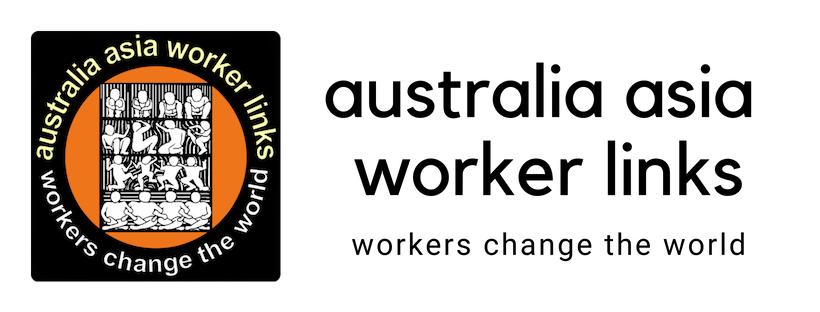 International Women’s Day (IWD) originated in 1911, when women garment workers in New York held demonstrations protesting against their appalling and dangerous working conditions, after a fire engulfed their factory. On IWD in 1917, Russian women textile workers went on strike. They gained wide public support and initiated the revolution – the Tsar abdicated 4 days later.
International Women’s Day (IWD) originated in 1911, when women garment workers in New York held demonstrations protesting against their appalling and dangerous working conditions, after a fire engulfed their factory. On IWD in 1917, Russian women textile workers went on strike. They gained wide public support and initiated the revolution – the Tsar abdicated 4 days later.
Women in the textile and ready made garment industries remain at the forefront of campaigns for health and safety, for decent wages and conditions, and against state repression and tyranny. We need only look to women workers in Bangladesh, Cambodia and Thailand to see these struggles.
The value of women's unpaid housework and community work is estimated to be up to one third of GDP worldwide, or about US$11 trillion. Nearly 70 per cent of the world's 1.3 billion people living in poverty are women. 80 per cent of the world's 27 million refugees are women and children. An estimated 20 million unsafe abortions are performed worldwide every year, resulting in the deaths of 70,000 women. Women still face domestic violence and rape in all countries. Basic rights including free and safe abortion are still illegal in many countries. Women's rights at school and at work are very restricted in Many countries. Equal pay for work of equal value still has not been achieved anywhere.
In cities across the world on 8 March women and men will be marching to advance the fight for women’s rights.
In Melbourne Australia, an IWD rally and march is being held on Saturday 8 March at 1pm at the State Library – Cnr La Trobe and Swanston Sts. Click here for details
Workers change the world.
 International Women’s Day (IWD) originated in 1911, when women garment workers in New York held demonstrations protesting against their appalling and dangerous working conditions, after a fire engulfed their factory. On IWD in 1917, Russian women textile workers went on strike. They gained wide public support and initiated the revolution – the Tsar abdicated 4 days later.
International Women’s Day (IWD) originated in 1911, when women garment workers in New York held demonstrations protesting against their appalling and dangerous working conditions, after a fire engulfed their factory. On IWD in 1917, Russian women textile workers went on strike. They gained wide public support and initiated the revolution – the Tsar abdicated 4 days later.
Women in the textile and ready made garment industries remain at the forefront of campaigns for health and safety, for decent wages and conditions, and against state repression and tyranny. We need only look to women workers in Bangladesh, Cambodia and Thailand to see these struggles.
The value of women's unpaid housework and community work is estimated to be up to one third of GDP worldwide, or about US$11 trillion. Nearly 70 per cent of the world's 1.3 billion people living in poverty are women. 80 per cent of the world's 27 million refugees are women and children. An estimated 20 million unsafe abortions are performed worldwide every year, resulting in the deaths of 70,000 women. Women still face domestic violence and rape in all countries. Basic rights including free and safe abortion are still illegal in many countries. Women's rights at school and at work are very restricted in Many countries. Equal pay for work of equal value still has not been achieved anywhere.
In cities across the world on 8 March women and men will be marching to advance the fight for women’s rights.
In Melbourne Australia, an IWD rally and march is being held on Saturday 8 March at 1pm at the State Library – Cnr La Trobe and Swanston Sts. Click here for details
Workers change the world.

